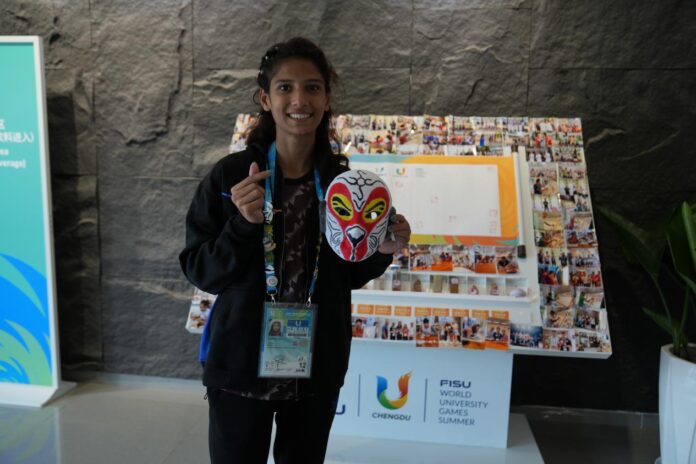By Dai Kairan, People’s Daily
The 31st summer edition of the FISU World University Games just lighted up its host city Chengdu. Apart from exciting games, it also created an opportunity for young people around the world to enjoy rich and splendid cultural activities.
During the event, a series of cultural exchange activities blending international elements, Chinese characteristics and Sichuan local styles unfolded in spectacular fashion, giving the world new gateways to understand the Chinese culture.
From the amazing symbol of Golden Sun Birds presented at the opening ceremony, to the Sichuan Opera face-changing performance that sparked cheers before an awards ceremony, and from intangible cultural heritage activities hosted in the Universiade village, to the picturesque cultural tourism routes showcasing Sichuan’s splendor, young members of each delegation have fully experienced the unique charm of the Chinese culture.
These cultural exchanges helped enhance friendship among youths worldwide.
During the Chengdu Universiade, “Be Together” themed shows were staged every night at the Art Center of the Universiade village and met with thunderous applause. A concert of Guqin, a plucked seven-string Chinese musical instrument, demonstrated the captivating charm of Chinese music, and a performance of Chinese ethnic songs and dances showcased the infectious energy of Chinese art.
Facundo Corvalan, a basketball player from the Argentine delegation, told People’s Daily that attending the themed shows was something that he expected every day.
The Chengdu Universiade nurtured a sound environment where young athletes from around the world were able to build friendship and enhance mutual understanding in relaxing and joyful cultural performances.
These cultural exchanges witnessed the skills and wisdom of Chinese artisans.
During the Chengdu Universiade, Tulen Rafael Yvon, a fencer from the Netherlands was a frequent visitor to the interactive experience center of the Universiade village. Under the guidance of instructors there, he tried his hand at Sichuan Opera masks and weaving bamboo handicrafts, which he would later gift to family and friends interested in the Chinese culture back home.
These days, Sichuan embroidery, bamboo weaving and Sichuan Opera face mask drawing were all trendy in the Universiade village. Young athletes from across the world, led by inheritors of intangible cultural heritage, immersed themselves in the skills and wisdom of Chinese craftsmanship.
Whenever the night fell, “cultural markets” just bustled with hands-on activities like pottery, jar tossing, drumming, and ancient soccer, transporting participants through a traditional cultural wonderland brimming with antiquity. The convergence of culture and the Chengdu Universiade nurtured an embrace between tradition and youth.
These cultural exchanges highlighted the magnetism of China’s rich culture.
The mascot of the Games Rongbao, a panda with flame elements, was broadly welcomed; the Chengdu Research Base of Giant Panda Breeding remained a hot destination for delegations; panda-themed toys, clothes and ice pops were seen everywhere in the city of Chengdu. The cute image of giant panda delivered a heartwarming message – Chengdu always opens its arms wide to embrace friends from across the world.
The organizing committee of the Games launched 11 cultural tourism routes to showcase the beauty of the park city of Chengdu and its laid-back vibe, so as to better present Chengdu and China to the young members of delegations from different countries.
Nekifor Maria Erika, a fencer from the Hungarian delegation, said the Universiade allowed her to appreciate the unique Sichuan culture, and she hopes for more opportunities to experience the profound Chinese culture.
Civilizations have become richer and more colorful with exchanges and mutual learning. The diverse cultural exchange activities highlighted the Chengdu Universiade. They helped young athletes from across the globe deepen mutual understanding, writing vivid chapters of friendship and solidarity

